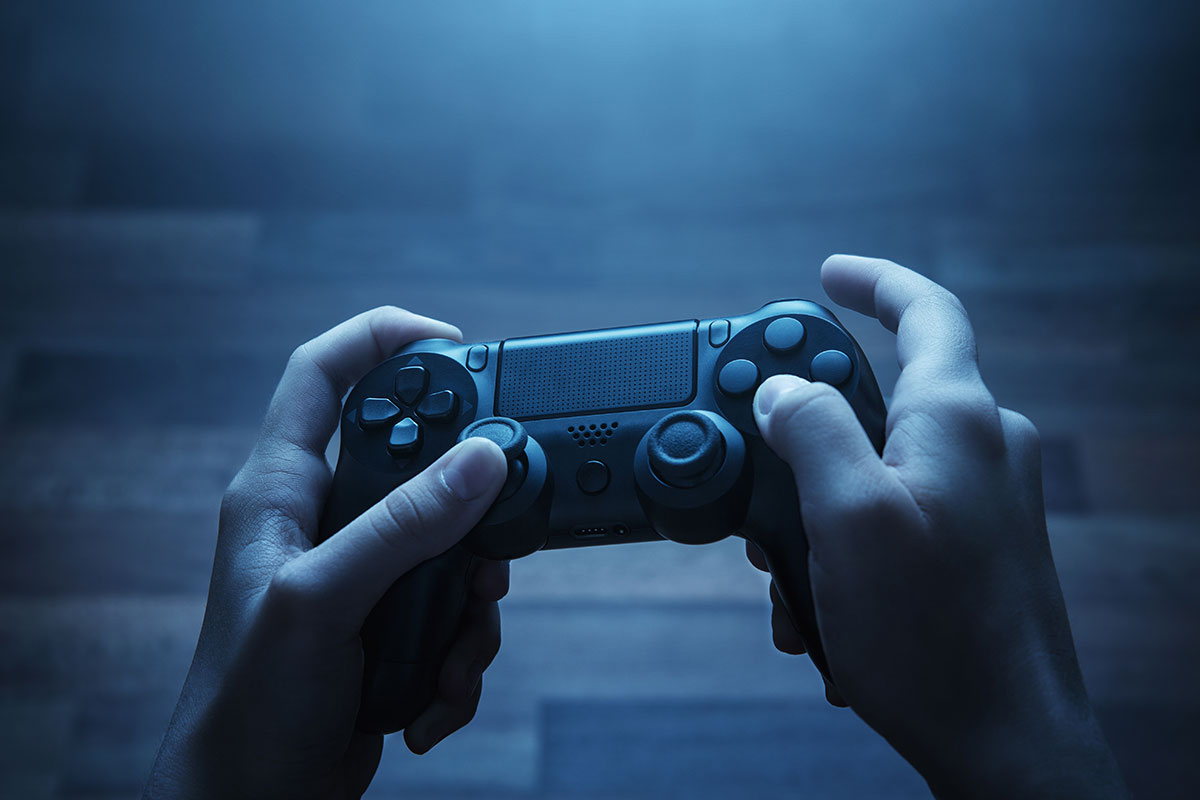Giving a child a video game may not be the best idea, according to addiction expert Nancy Petry at UConn Health.
More than 90 percent of children ages 2 to 17 play video games. For most children, it’s just one of their many activities; but for some video gaming can become a problematic, time-consuming, addictive behavior.
“If a child has a problem playing too much video games, parents and family members should really think twice before buying video games,” says Nancy Petry, professor of medicine at UConn School of Medicine who serves as editor of the American Psychological Association’s journal Psychology of Addictive Behaviors. “The last thing you want to do is feed a child’s addiction with more games.”
This holiday season the video game industry is expected to make $13.1 billion in product sales and an additional $35.91 billion in sales of mobile apps and other digital video game downloads and content, according to SuperData Research Inc.
The last thing you want to do is feed a child’s addiction with more games. — Nancy Petry
However, Petry says giving one video game as a gift may be okay if your child doesn’t have an issue with too much gaming and participates in a wide variety of social and physical activities with others. But she says parents need to closely monitor their child’s video game use.
More than 36 percent of children play video games every day. The average child plays 1.5 hours a day on the weekend and 30 minutes on a weekday. But some children can develop an addiction when they begin to play for very long hours. Problems start to arise when video game hours start increasing to 12 hours or more per week.
Children with a video game addiction play 3 to 8 hours daily, or even more. In fact, more than 1.5 percent of adolescents develop a full-blown addiction to gaming, while others can develop less severe problems. Boys are at much greater risk than girls because they play electronic games more, especially the types of games that more often lead to problems. Also, children who are more socially isolated, or have depression or attention deficit disorder (ADD) are at greater risk of developing a gaming addiction.
The warning signs parents should be aware of include: new problems at school, such as poor grades, trouble or a decline in social interactions with family and friends, and a reduction in other hobbies they once enjoyed. Covering up how much they are gaming is another sign that things may be going wrong.
To prevent a child’s video gaming or digital screen addiction, Petry urges parents to limit their child’s exposure from the beginning, and to heed the latest advice of the American Academy of Pediatrics.
This fall the AAP updated their guidelines calling for a limit to digital media exposure for children of all ages. For infants up to 18 months, they recommend no digital media exposure for healthy brain development and connections with their parents. The AAP reduced its prior recommendation of no more than two hours in front of the TV or screen for kids ages 2 to 5 to now just one hour per day or less. For those 6 and older, they leave it up to parents to determine and monitor screen time.
Petry urges parents of older children and adolescents to carefully consider appropriate screen time, because kids with clearly defined limits are less likely to develop problems than those without. Parents should also make sure their child, regardless of age, is involved in other activities beyond the screen.
“It’s easier to prevent screen and video game addiction than to break the bad habit once it’s developed,” she says. “It may seem okay to let kids play games, and many parents think gaming is not as bad as drinking or using drugs. While that may be true in many cases, parents really need to be cautious and take action to intervene if gaming becomes all encompassing. For some kids, it can lead to severe problems.”
Petry has launched the first study of its kind nationally at UConn Health to help parents deal with their child’s video game addiction. Compared to standard referrals, the study is testing the benefits of one-on-one counseling with one or both parents, and the child if he or she is willing to participate. The treatment coaches them on how to better understand what gaming addiction is, why their child derives pleasure from the activity, and the best ways to monitor and intervene to reduce their child’s gaming.
“A lot of parents see and worry about their child playing video games too much, but most don’t seek help,” says Petry. But so far the parents in her study have been finding the intervention very helpful, she says, and are learning how to better communicate with their child about video gaming and ways to limit it.
She notes that there are only a few studies in Europe and Southeast Asia actually testing interventions for children with video game addiction. In the U.S., treatment for gaming addiction is not covered by insurance, and in large part that is because the condition is not yet recognized as an official disorder. Petry led efforts to include it as a condition requiring greater research in the latest version of the American Psychiatric Association’s diagnostic manual on mental disorders. This study will help with classification, and eventually access to treatment.
Petry reminds parents to be a good role model for their child by not overusing digital media or video games themselves.
“Children learn more from their parents than anyone else,” she says. “Parents should aim to limit their own screen time if they don’t want their kids to think it’s okay to always be in front of a screen.”
If you are a parent and worried about how much your child plays video games, you can find out more about participating in the study at 860-989-7105 or by email: anovotny@uchc.edu.



